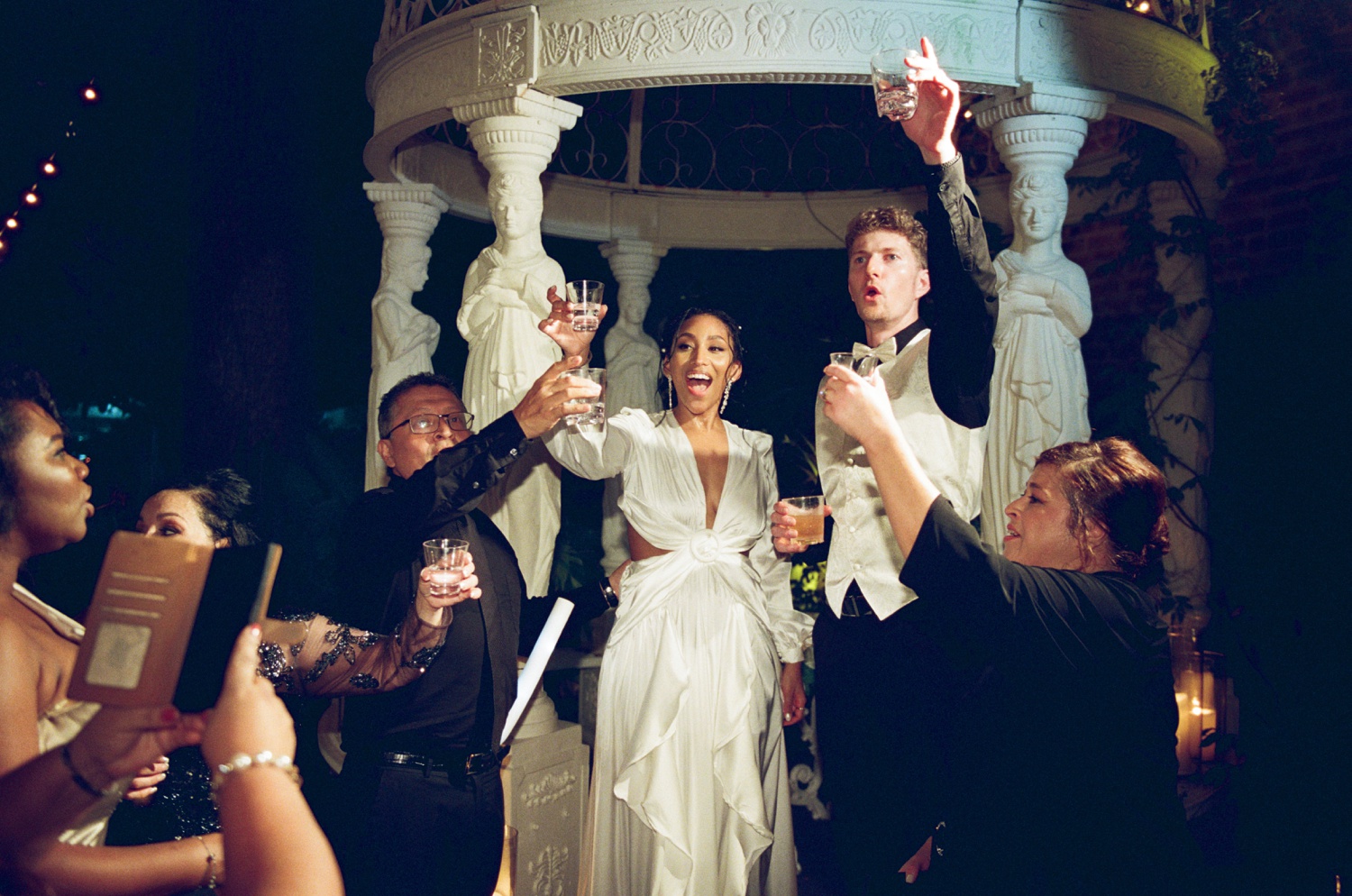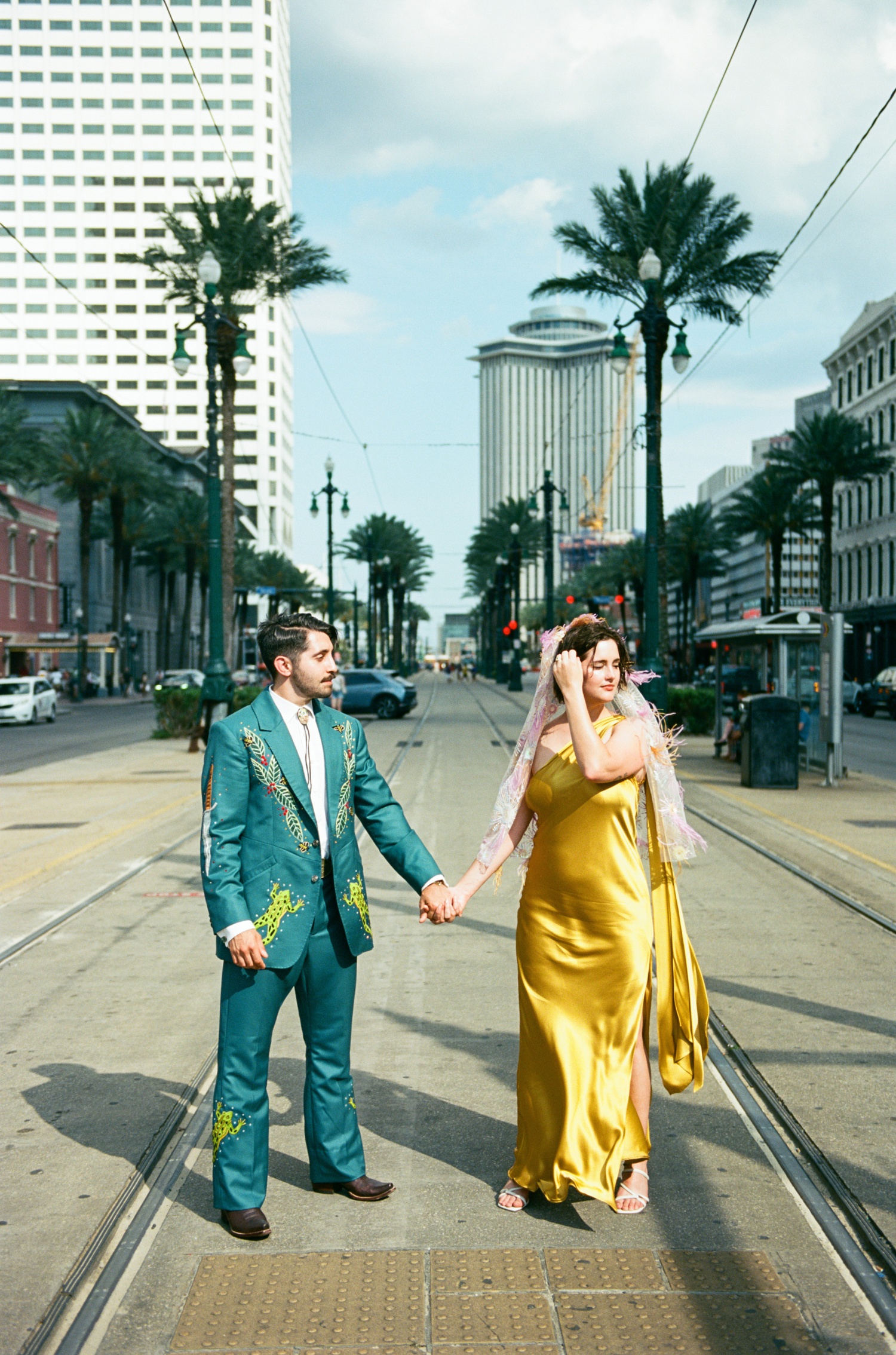For Photographers
Small Weddings
Planning TIPS
couples sessions
Weddings
LGBTQ
Here, I celebrate and affirm your love no matter what your love looks like. I know the wedding industry was built on a foundation of whiteness, thinness, and cisheteronormativity.I stand to change that. Join me.
Your queer wedding photographer & posing coach.
I'm Theo
Film wedding photography is so fascinating because it’s been around for over a century, but it’s experiencing a renaissance. This art form goes beyond a trend, connecting marriers to an archive of relationships that came before and those that will come after. Film photography is an even more specialized skill set than digital these days. If you’re considering adding film to your wedding photography package, here are ten questions to help you find the right photographer for you.
1. Can your photographer provide examples of film wedding photography in low light situations?
Digital cameras are powerful tools. They’re designed to perform better than film cameras in low light, and you can recover more from a dark digital image during editing. That doesn’t mean film is out in dark venues and receptions!
Film photographers should understand artificial light. Usually that means flash photography. Direct flash is coming into vogue thanks to influences from fashion photography. The Knot interviewed me about direct flash and film wedding photography. You can read it here!
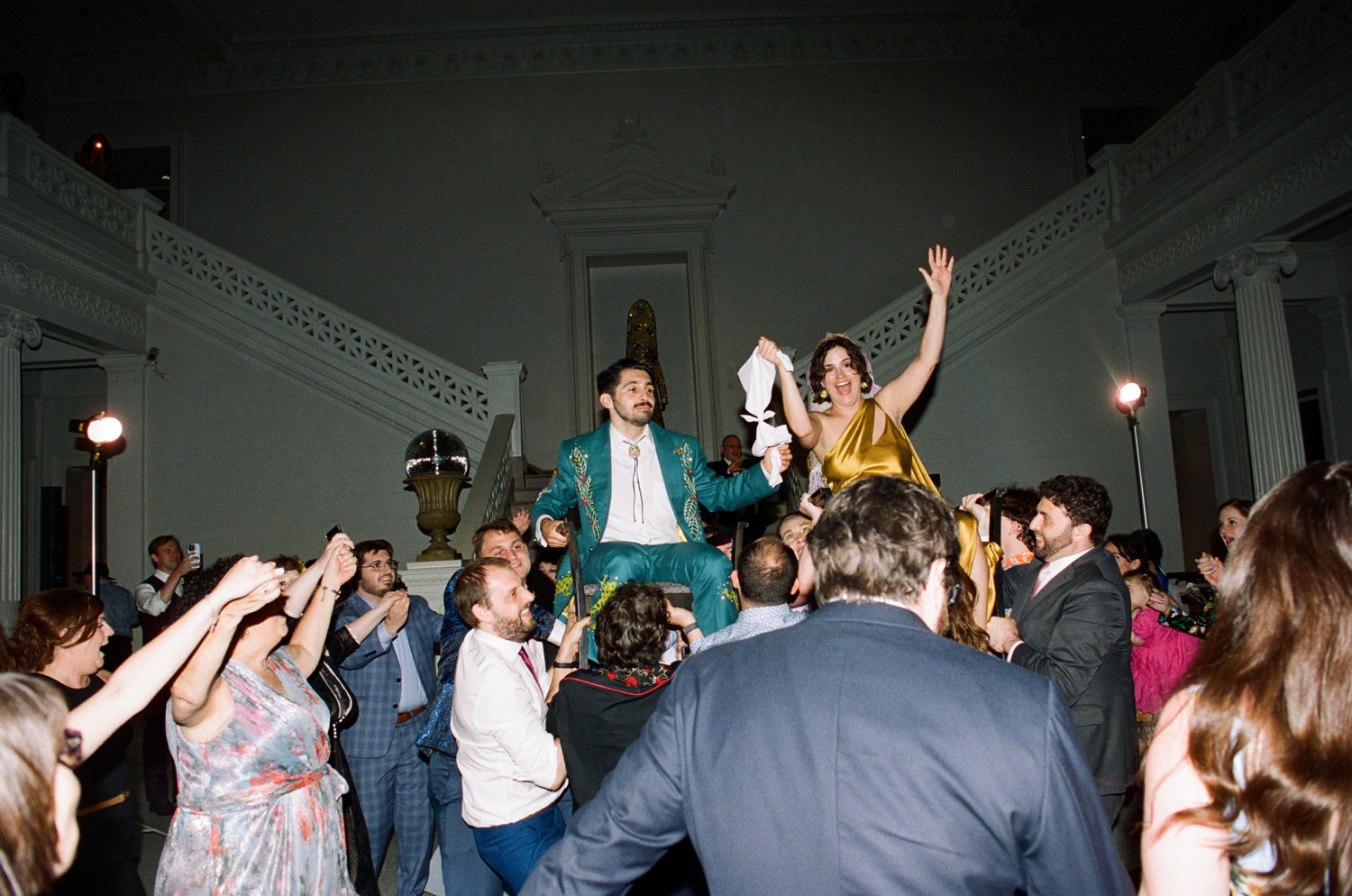
If you don’t see examples of film photography with artificial light (or you’re not sure if you’re seeing it) on a photographer’s website, ask to see them. Film wedding photography is a big investment. It’s ok to ask your potential photographer for work photographed in conditions similar to your wedding before you commit.
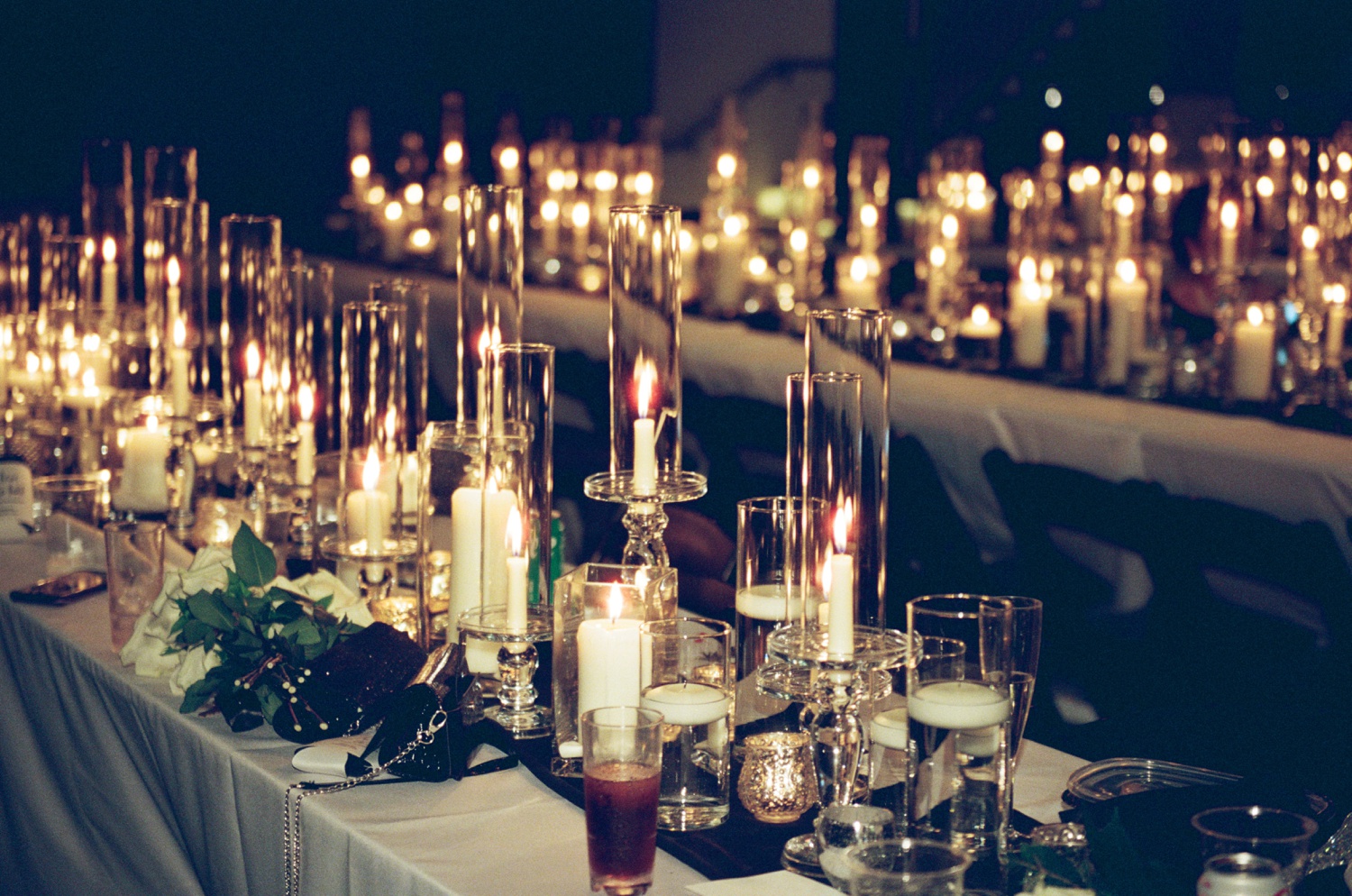
2. If digital cameras are so good, what does film add to a wedding gallery?
Answers will vary here, but the answer could tell you a lot about the photographer as a craftsperson. As a wedding photographer who blends film and digital, here are two of the main things that I value in film wedding photography.
Film is a great tool for gauging colors.
The tones and colors you get with film aren’t the products of trends. They were developed independently of Instagram filters, so your images stand the test of time. The history of photograph and film aren’t without its problems, but film wedding photography is as close as you’ll get to timeless. That’s why I use film photos as a baseline for editing digital images.
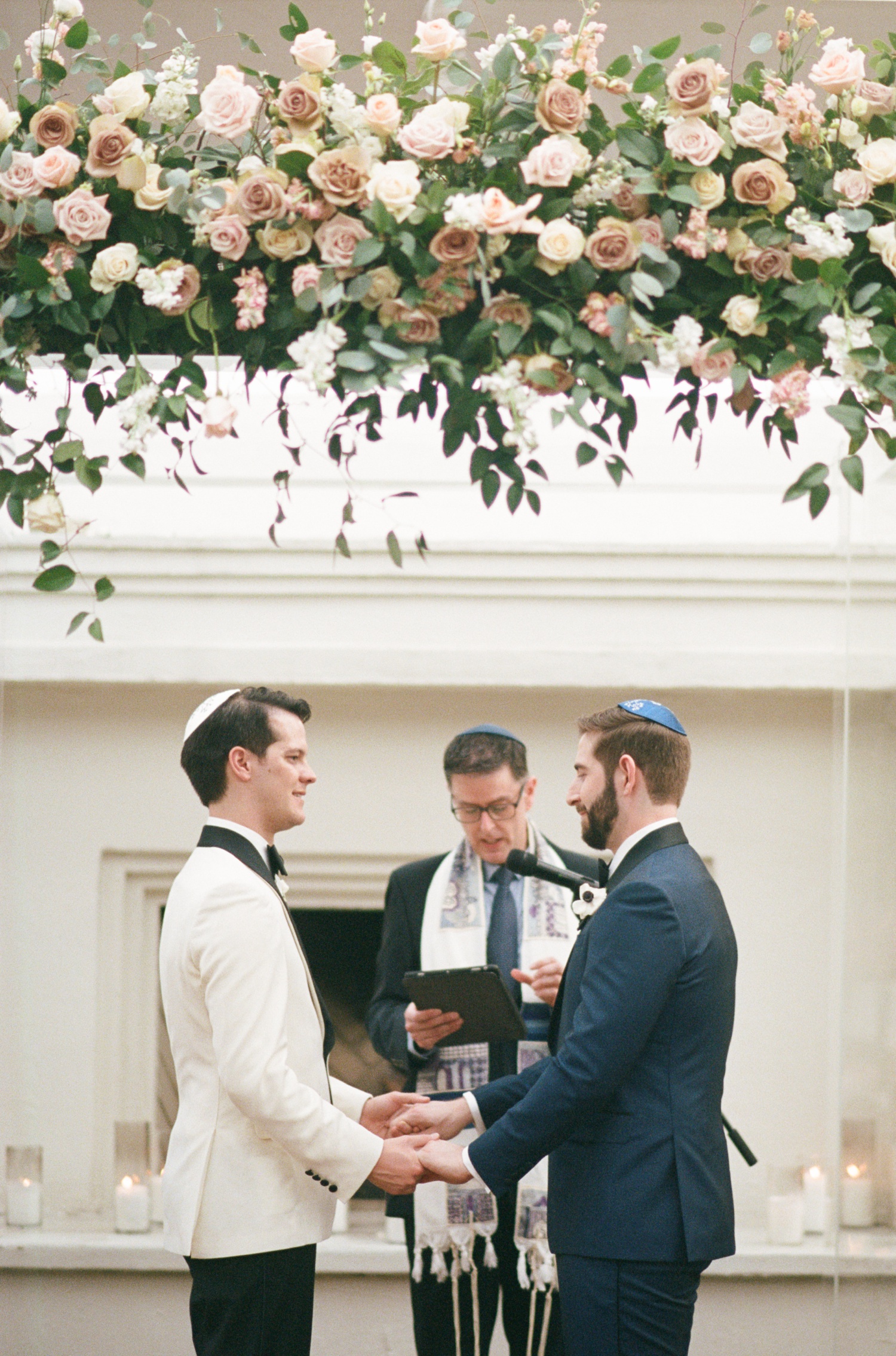
Film photography is authentic.
Unlike digital cameras, you can’t look at a film photo immediately after taking it. You can’t course correct. Being intentional is really important. The benefit is that film sees what’s actually happening. It shows the moments as your wedding really unfolds.
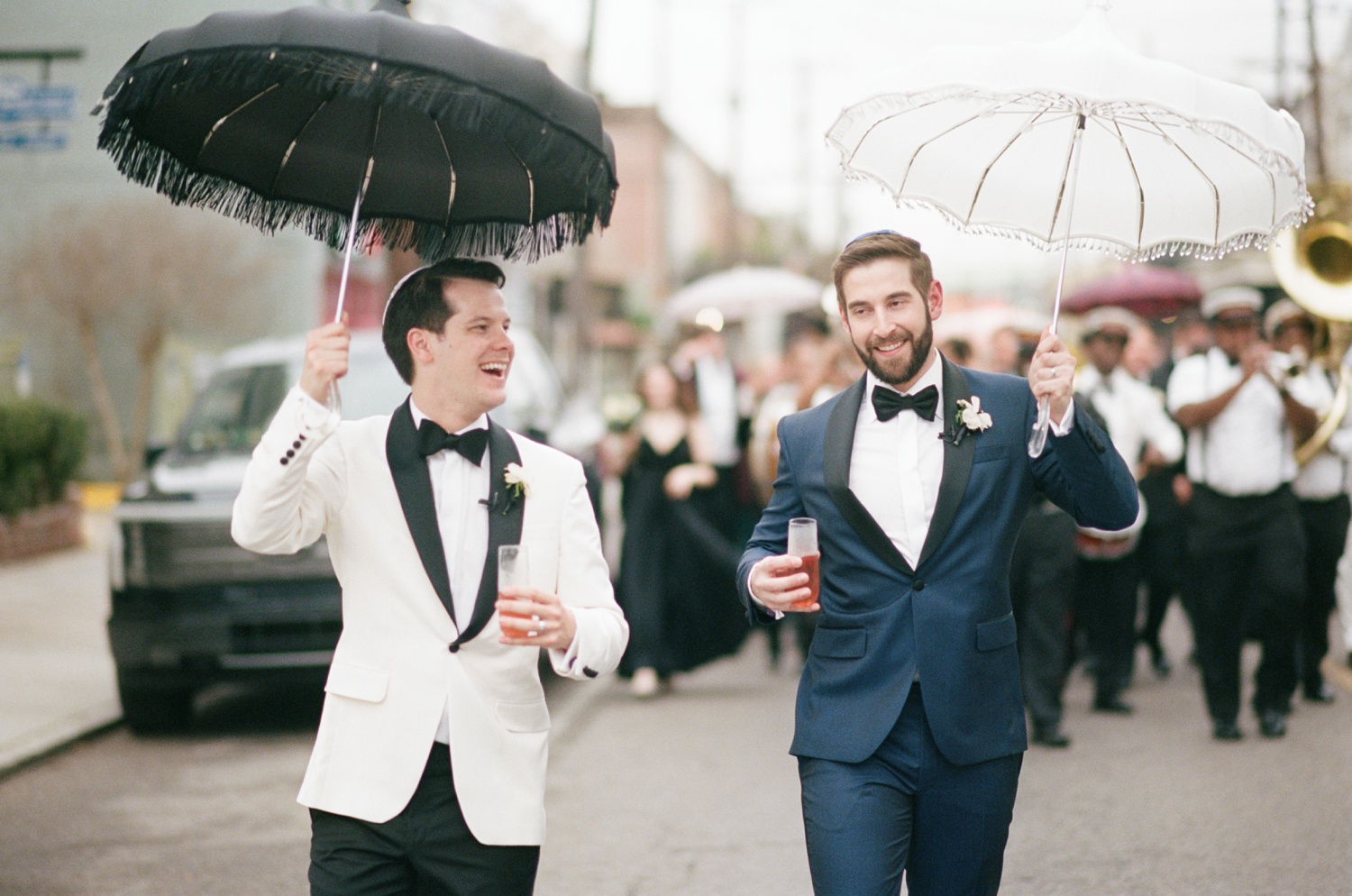
3. What kind of film do you photograph?
“Film” is a bit of an umbrella term that refers to many mediums. Most film wedding photographers use 35mm, medium format, and sometimes even point and shoot. That’s why this is such an important question to ask. Some photographers will photograph one roll of film on point and shoot and call it a day. That can be fun, but it gives you way less control than a manual 35mm or medium format camera. There’s less of a guarantee that you’ll get good images.
Personally, I love photographing weddings on manual 35mm cameras. I can control artificial lighting, including flash, and other settings. It allows me to create images that really look and feel like your wedding day.
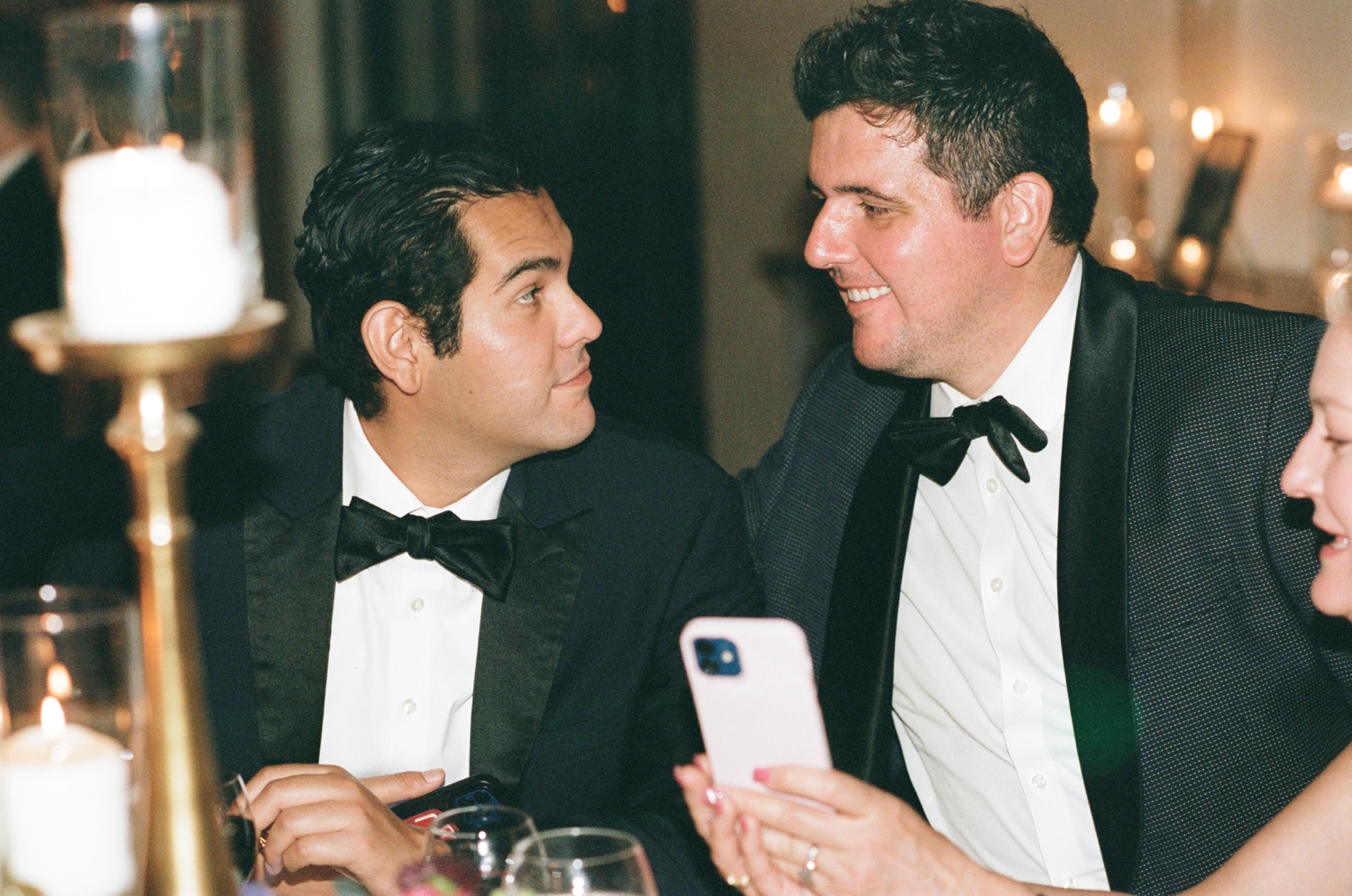
4. Can you guarantee a number of film photos?
The short answer is no. Choose a photographer whom you trust to select film or digital in any given conditions. This is another reason it’s important to ask for examples of work in venues similar to yours.
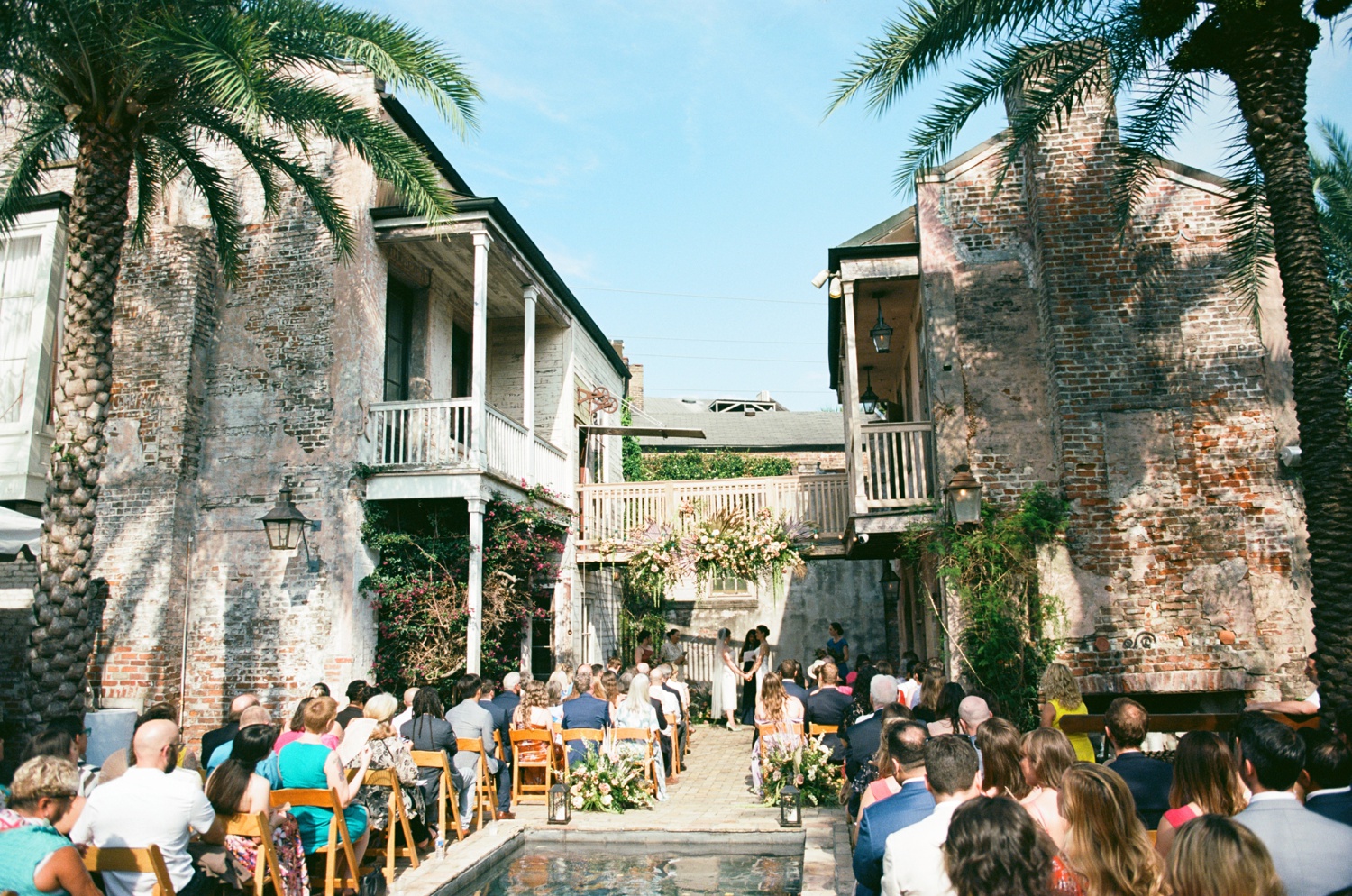
5. Is film fail-safe?
Film wedding photography is both a science and an art. The technology tends to be vintage and, depending on its condition, can malfunction. Moreover, there’s no backup on a memory card the way there is with digital.
Don’t let that scare you, though! Of the many weddings that I’ve photographed on film, I’ve never had anything more dramatic than a light leak. And let’s be honest. Those usually look pretty cool.
Nevertheless, I always try to photograph digital backups. Having a second photographer makes this much easier. I get to focus on film while my second makes sure we have a digital version of the image too.
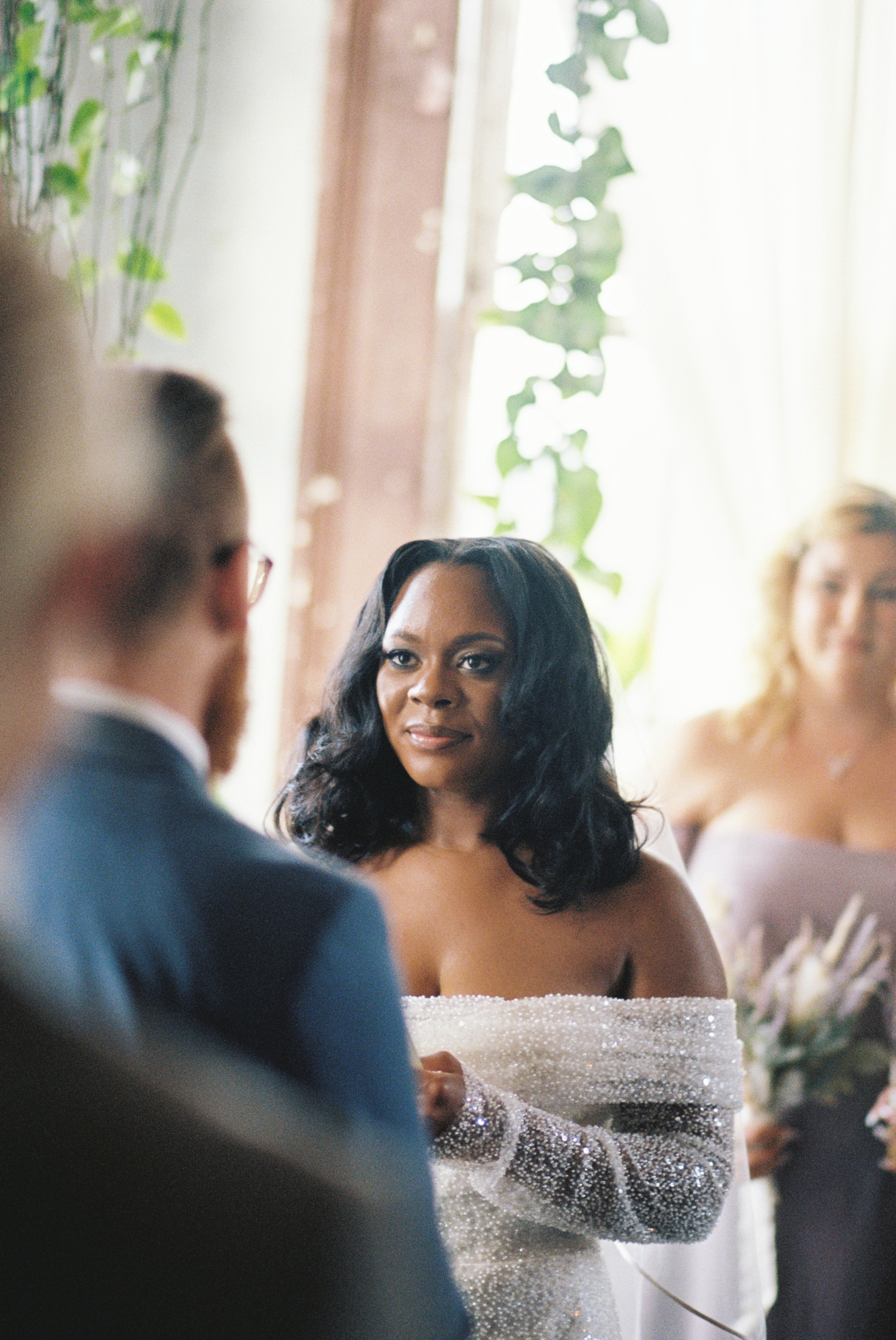
6. How will film photography impact your wedding timeline?
Because film requires specialized skills and more intentionality, it can slow things down. Keep that in mind when putting your timeline together. An experienced film photographer can give you tips on where to add a few extra minutes into your day. Again a second photographer can save time by freeing the lead photographer to focus on film.
If you’re hesitant to spend a lot of your wedding day doing portraits, let your photographer know. Even with film, my goal is to do mini portrait sessions throughout your day. That way you get time with your people and images that reflect the whole experience of your day.
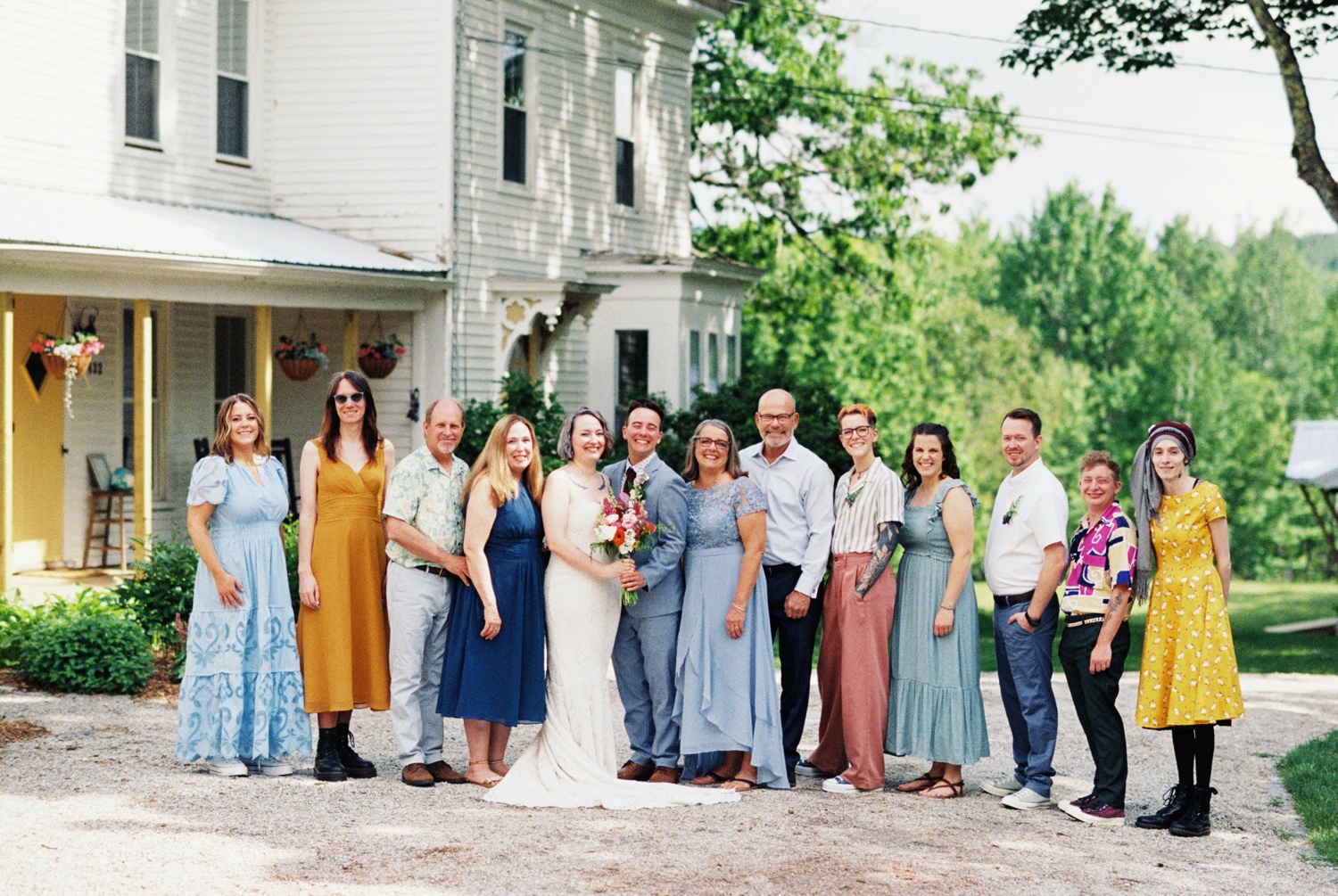
7. Do you blend film and digital photos in the wedding gallery?
Another way to ask this is: Does the photographer try to color match? The goal of color matching is to create continuity between film and digital images. That way all of your wedding photos tell a cohesive story. When digital images are edited very differently from film wedding photography, it can look disjointed. I use film images as my guide as much as possible to create continuity in tone and color.
Sometimes photographers will separate film and digital photos into different parts of the wedding gallery regardless of whether they color match. This may or may not matter to you. It all depends on your plans for your photos. I like to incorporate film wedding photography with digital images so you get to see your whole story from beginning to end.
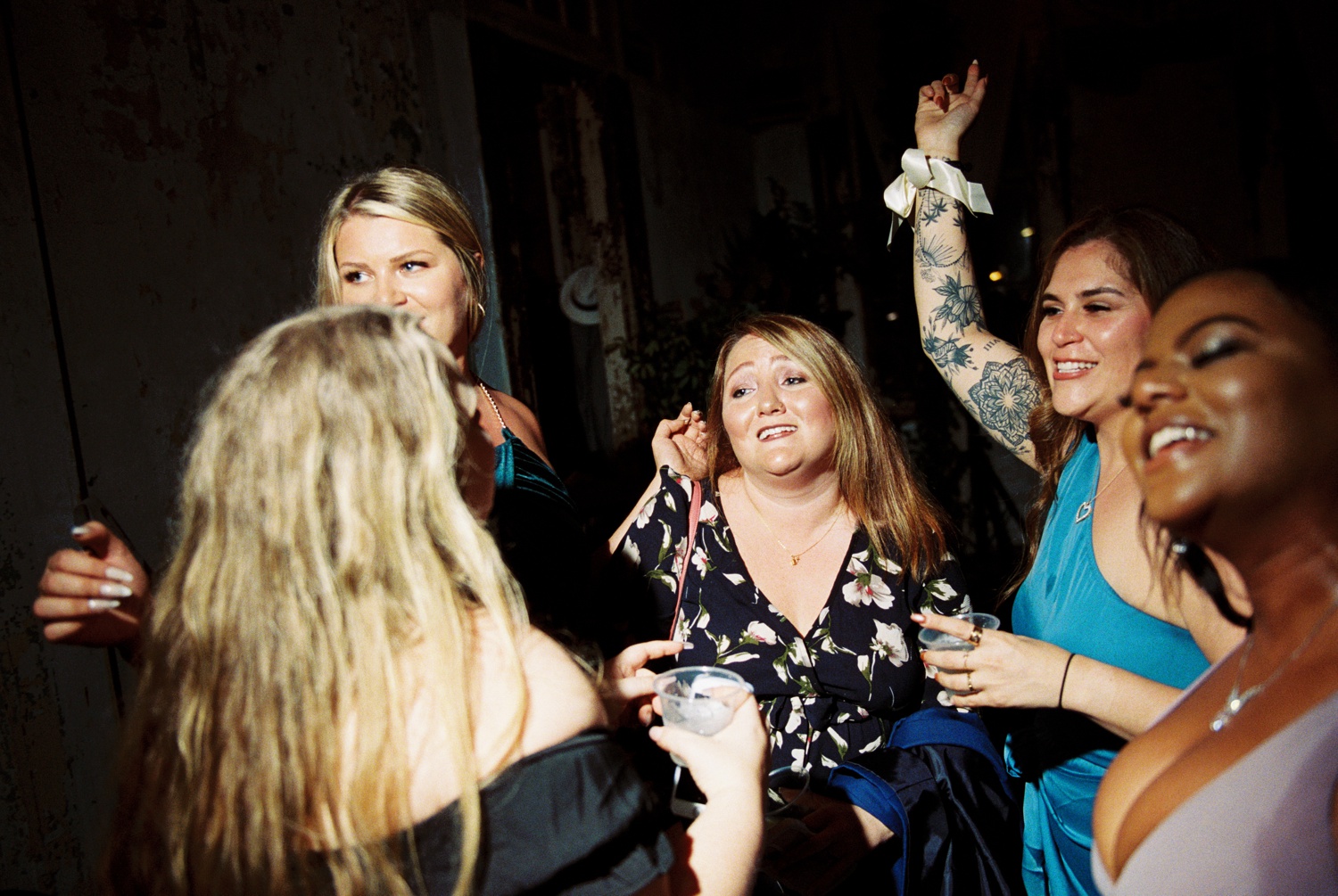
8. What’s the post-wedding process for film wedding photography?
Every photographer has their own process for what happens after your wedding day. Here are two things to consider.
The Timeline
In the days after your wedding, it’s exciting to get your sneak peeks. It really feels like a highlight reel of your day. Don’t expect your film photos to be in it, though. Photographers typically have to mail their film to a lab to scan it and create digital copies. When I receive those digital scans, I make small tweaks like cropping. The good news is that film doesn’t change my delivery date for the full gallery. You get all your photos in the same timeframe.
The Negatives
Sometimes clients ask if they get the negatives from their film wedding photography. I don’t usually deliver negatives because they don’t represent the final product (including those tweaks mentioned above). Digital scans are more helpful anyway because those are what you’ll use to order prints or share your images digitally.
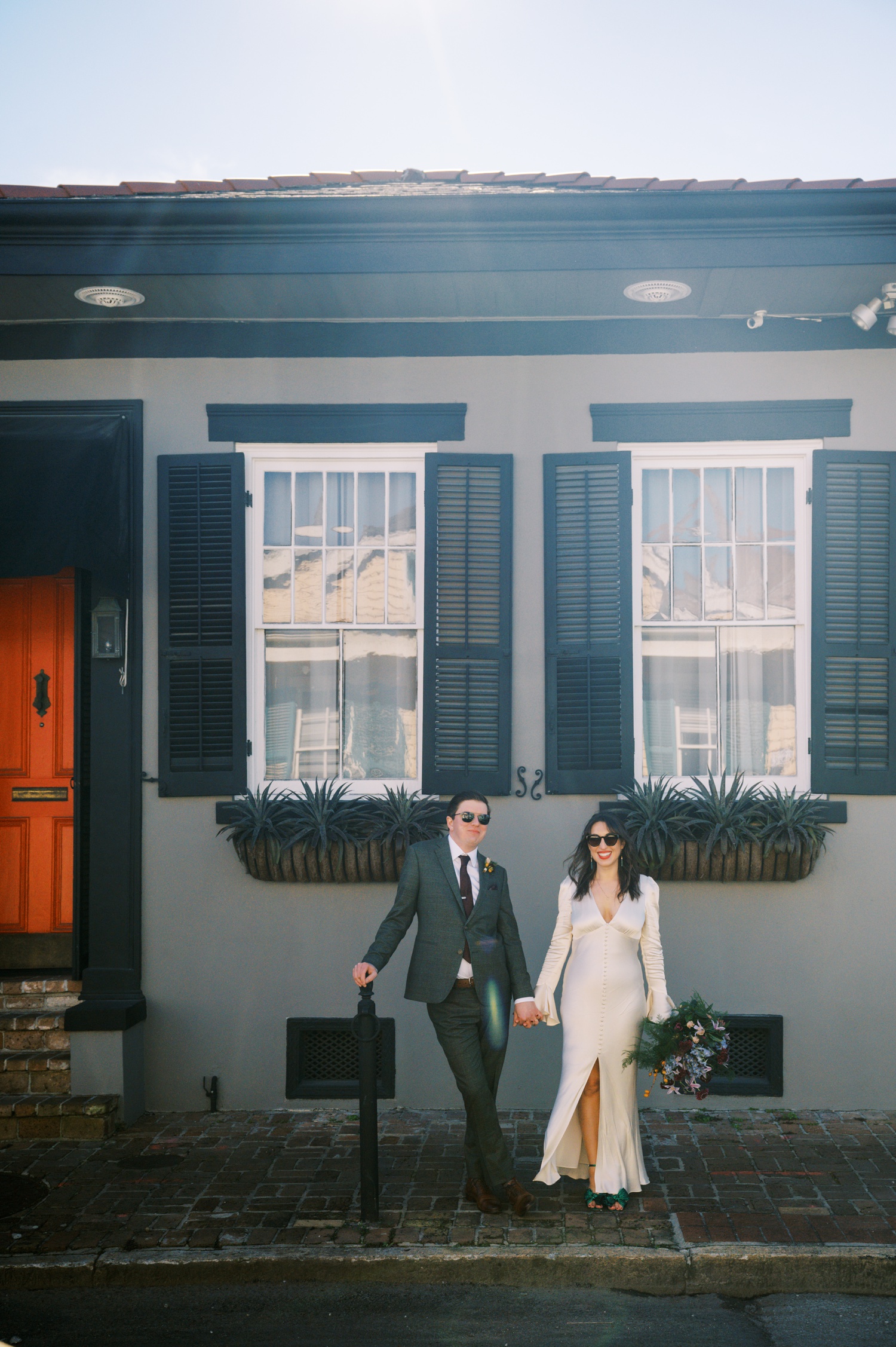
9. What’s your favorite thing about photographing weddings on film?
Like Question 2, different photographers will have their own takes on this. Their answers will tell you a lot about their approach to their craft. Here are two of my favorite things about photographing film.
The Intentionality
I love film photography because it forces me to slow down and get really intentional. I have to pay close attention to conditions, composition, and light. Even though I can make tiny adjustments in editing, I can’t make big changes, like recovering details in a dark or overexposed photo. Every shutter click counts.
The Archive
Film wedding photography connects generations of marriers in an incredible archive. It has longevity. You can imagine generations of people finding meaning in your images. For people whose history has been made invisible at times (like queer people), that’s especially powerful.
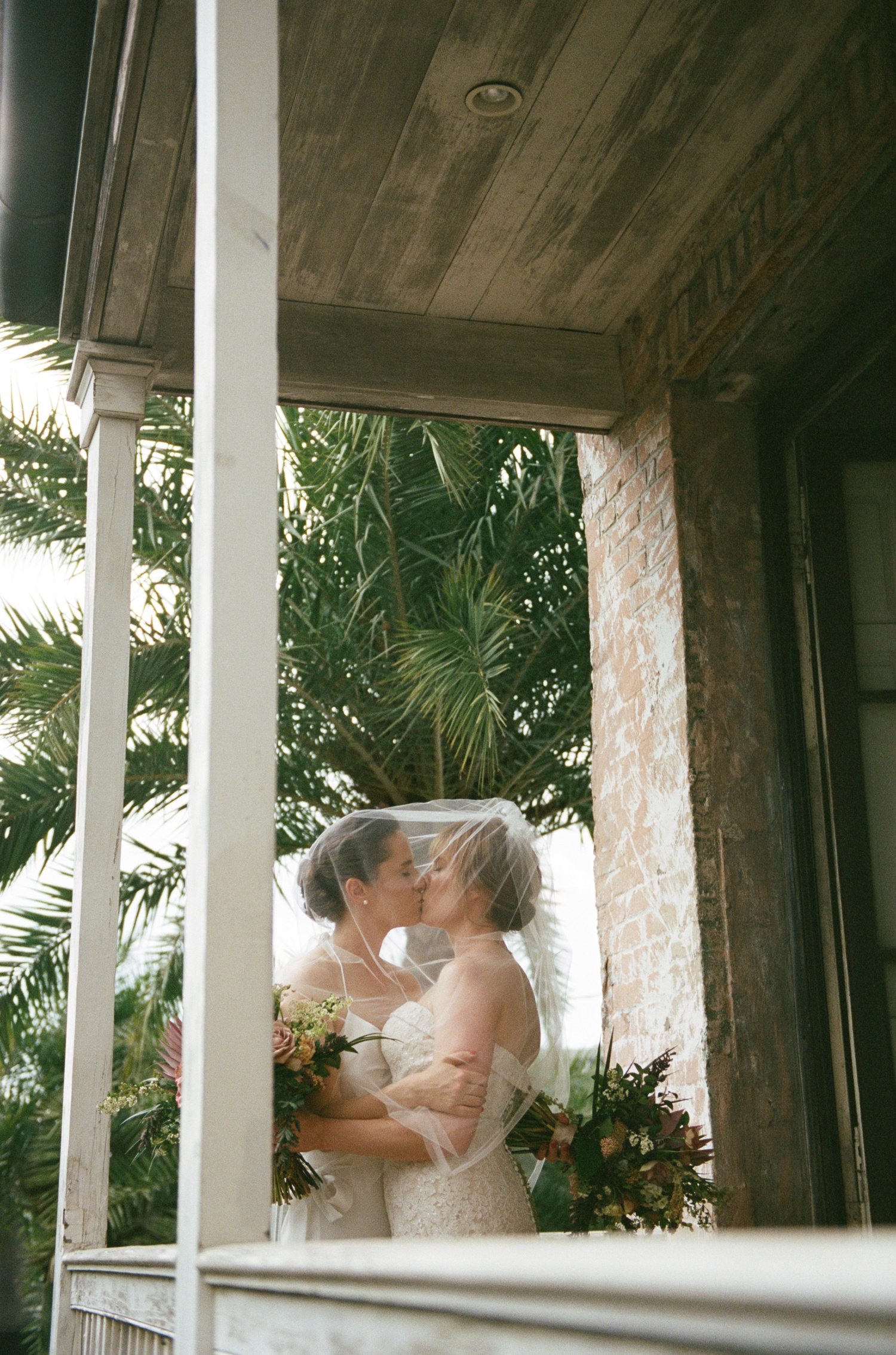
10. Do you have experience in a darkroom?
Maybe you’re wondering what darkroom has to do with your film wedding photography. In my experience, the darkroom helps photographers understand what film can and can’t do. I actually learned photography with a film camera in high school. The hours I spent in the darkroom taught me a lot of the mechanics and craft of photography. Those are lessons I take into every wedding I photograph.
Would you like me to photograph your wedding on film? I’m a Philadelphia wedding photographer who is ready to travel. Let’s add your love to the archive! Reach out to me here.
